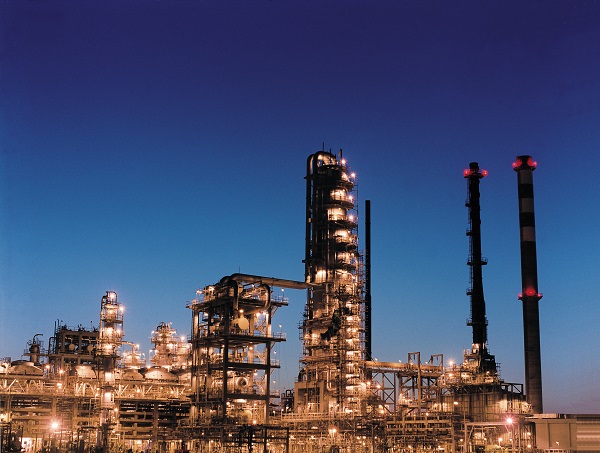DUBAI, United Arab Emirates – Luberef said new API Group II base oils and bright stock production from its Yanbual Bahr, Saudi Arabia, plant could be delayed by a year due to financial problems for the main contractor.
Luberef President and CEO Salahaddin A. Dardeer said he was worried by the situation and that discussions to resolve the issue were ongoing. Dardeer spoke to Lube Report last week on the sidelines of the ICIS Middle Eastern Base Oils and Lubricants Conference in Dubai. In 2012 Luberef awarded an $871 million Yanbu contract to Koreas Samsung Engineering for the engineering, procurement, construction and commissioning of the project.

Photo: Luberef
Production from Luberef’s expansion and upgrade of its base oil plant in Yanbual Bahr, Saudi Arabia, has been delayed. The expansion will add 708,000 tons per year of Group II base oil and an additional 90,000 t/y of bright stock production capacity.
Earlier Luberefs management told conference delegates it expected to start up production in the first quarter of 2017 and bring molecules to market by mid- to late-third quarter of 2017, saying the project had incurred delays because of the contractors performance.
When the project is finished, the Yanbu plant will have capacity to make 708,000 metric tons per year of Group II and 175,000 t/y of Group I, including 90,000 t/y of additional bright stock. Before the project, the plant had capacity to make 282,000 t/y of Group I, including 84,000 t/y of bright stock.
The expanded Yanbu plant will have an increased capacity of 708,000 t/y of Group II base oils and 90,000 t/y of bright stock. The plant will also produce drilling fluid and low-viscosity specialty oils.
Headquartered in Jeddah, Luberef is a 70-30 joint venture between Saudi Aramco and Jadwa Industrial Investment Co.
Saudi Arabia sees Luberef as the main source of Group II base oils that it believes will be necessary for a Kingdom-wide heavy-duty diesel engine oil upgrade to the American Petroleum Institutes CH-4 standard. Saudi Arabia has lagged other Middle East Gulf states in adopting the standard, analysts say. Although it is possible to meet the CH-4 specification requirements using Group I, base oils blenders – including Al Hamrani Fuchs Petroleum in Saudi Arabia – say that doing so is impractical.
Dardeer declined to comment on speculation Aramco could fully acquire Luberef to bolster its downstream capability in the run-up to a highly anticipated floatation. Thats a bit far from me, but you never know, he said. Dardeer also denied that the fall in crude prices contributed to the projects delay.
The Middle East is increasingly seen as a base oils hub, but Luberefs postponement mirrors similar delays experienced by Abu Dhabi National Oil Co. in the United Arab Emirates. Adnocs new Group II/III base oils plant in Ruwais was slated to commence production in 2013 but only began commercial production in April this year. Luberef originally envisaged its Yanbu plant project being finished by the end of 2015.
The fall in crude oil prices resulted in a government austerity drive that has squeezed contractors in Saudi Arabia, with reports of lengthy payment delays on government-related contracts. Saudi Arabia amassed a $98 billion budget deficit at the end of last year and in response cut expensive energy subsidies and public sector pay.
Last year, Samsung Engineering racked up large losses on oil and gas projects in the Middle East, many of which were won on razor thin margins, forcing the company to seek a $1.1 billion rights issue to maintain financial stability. A rights issue invites existing shareholders to buy additional new shares in the company at a discount to the then-current trading price. Samsung Engineering did not reply to a request for a comment.